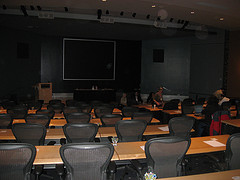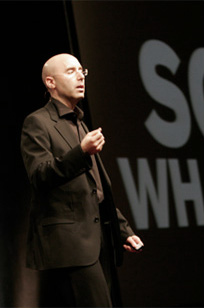For the past three years, I’ve had the privilege of chairing the Social Media for Government Conference in Ottawa. And I’ll be chairing the next conference to be held in just one month, from June 21 to June 24.
 A great learning experience
A great learning experience
This conference is an opportunity to learn about how social media is being used by government and to discuss the challenges and opportunities it presents.
Speakers from all levels of government – federal, provincial and municipal – will be sharing their experience with social media and the insight they gained. Organizations presenting case studies include: Public Safety Canada, Alberta Environment, Army Public Affairs, the U.S. Department of State, the Office of the Privacy Commissioner of Canada, the Office of the Ontario Ombudsman, the Public Service Commission of Canada, the Ottawa Public Library, the Canadian Internet Registration Authority, Norfolk County and the cities of London and Ottawa.
I’ll be speaking as well. On the day before the conference proper, I’ll be presenting a Social Media 101 Workshop and on the first morning of the conference, I’ll be co-presenting with Pierre Killeen about public engagement in the age of social media.
Save $400 off the registration fee for the Social Media for Government Conference
If you’ve read this far, it’s fair to say that you’re interested in learning about the adoption of social media by government. So, here’s a great offer.
People who registered for the conference before April 30 were eligible for an Early Bird Discount of $400. But April 30 has come and gone and that discount has expired. That’s the bad news.
Now the good news. Just mention my name when you register for the Social Media for Government Conference and you’ll receive a $400 discount off the registration fee. That’s the equivalent of the Early Bird Registration – and you can use my discount right up to conference day. It doesn’t expire.
Why I attend the Social Media for Government Conference
I chair and participate in this conference as a volunteer. I do it because it’s one of the best learning opportunities available to me in Ottawa.
Based on my experience over the past three years, I know you won’t regret attending this conference. You’ll learn a lot and meet some smart people. What more could you ask for?






